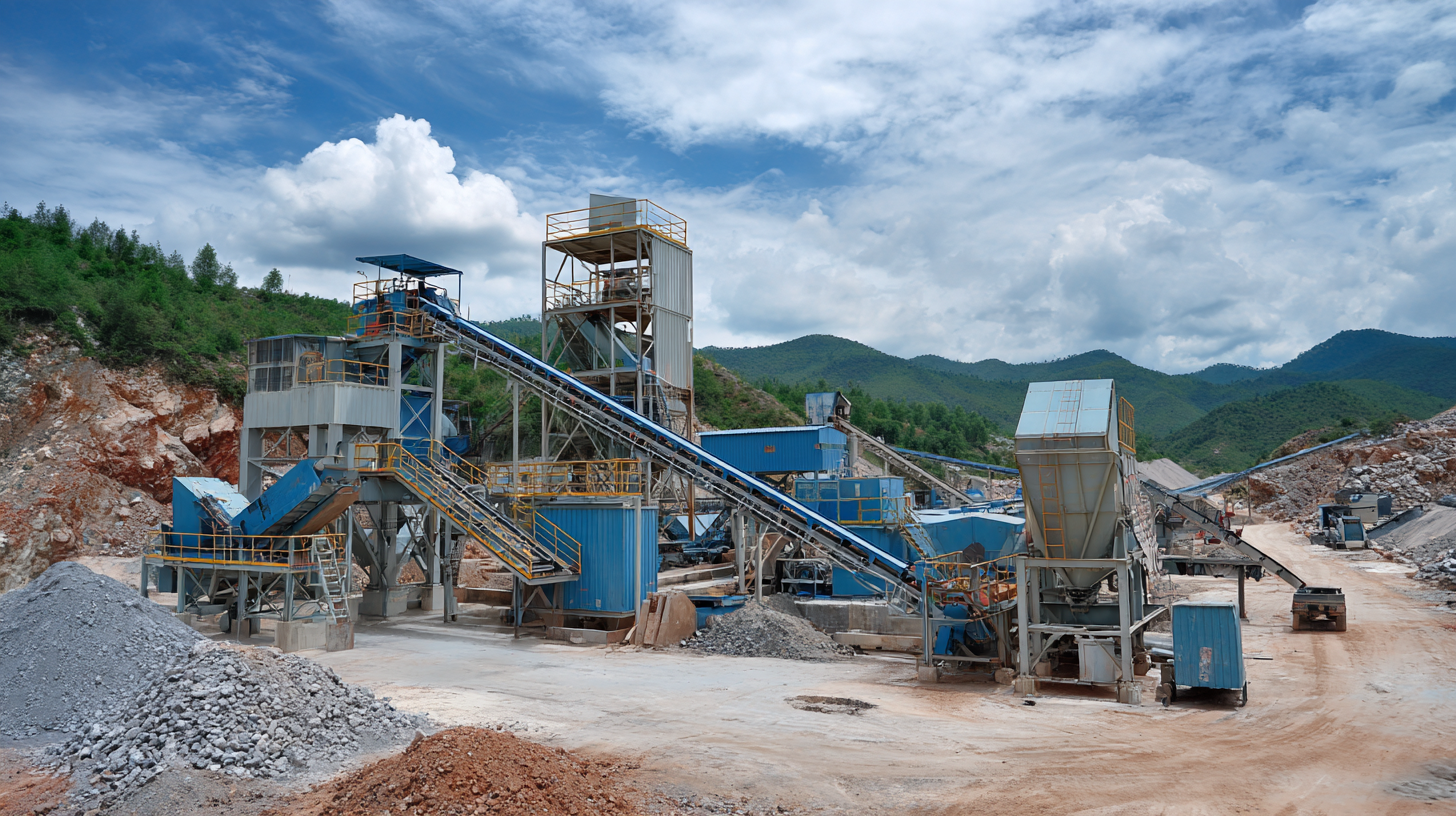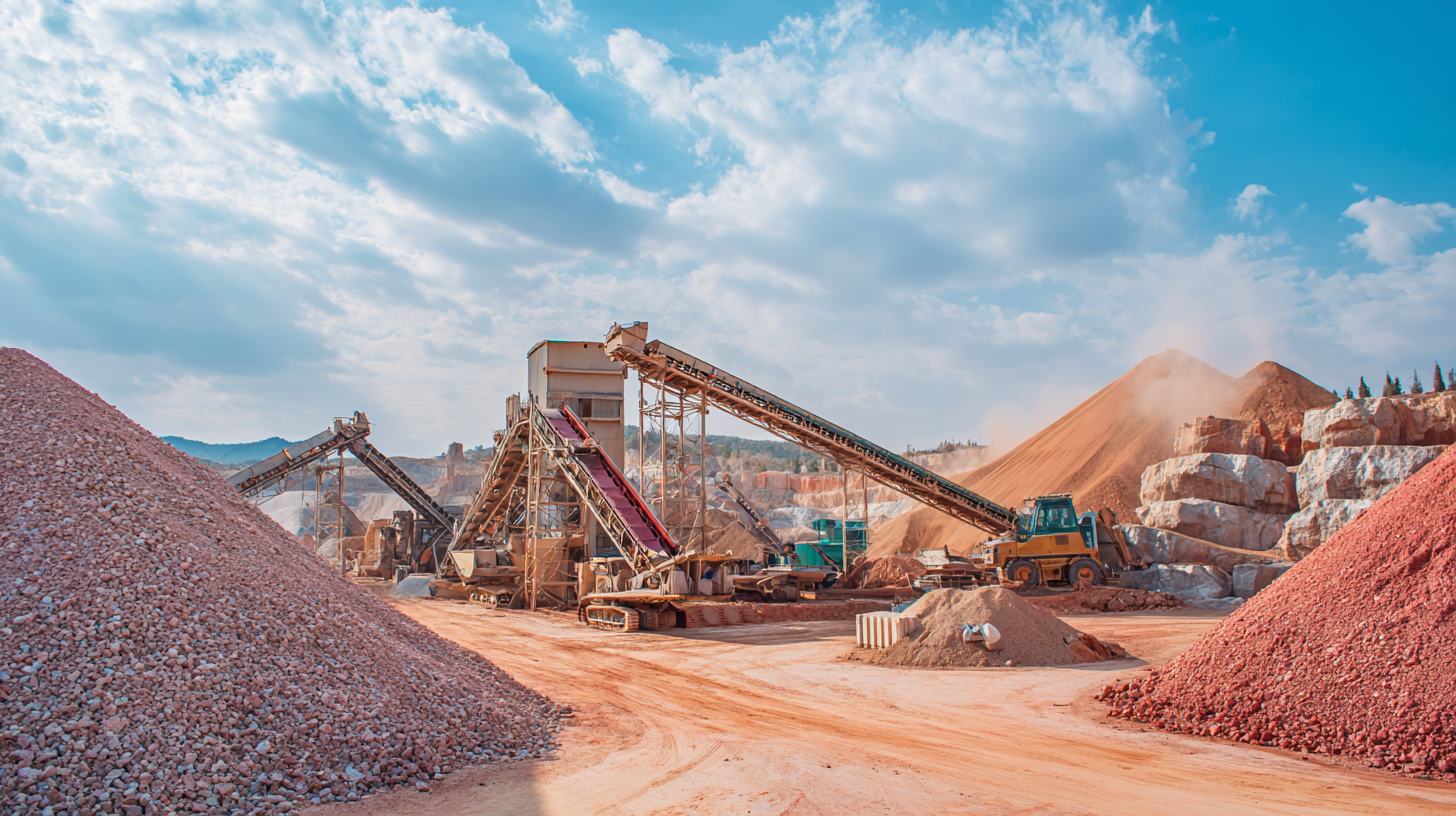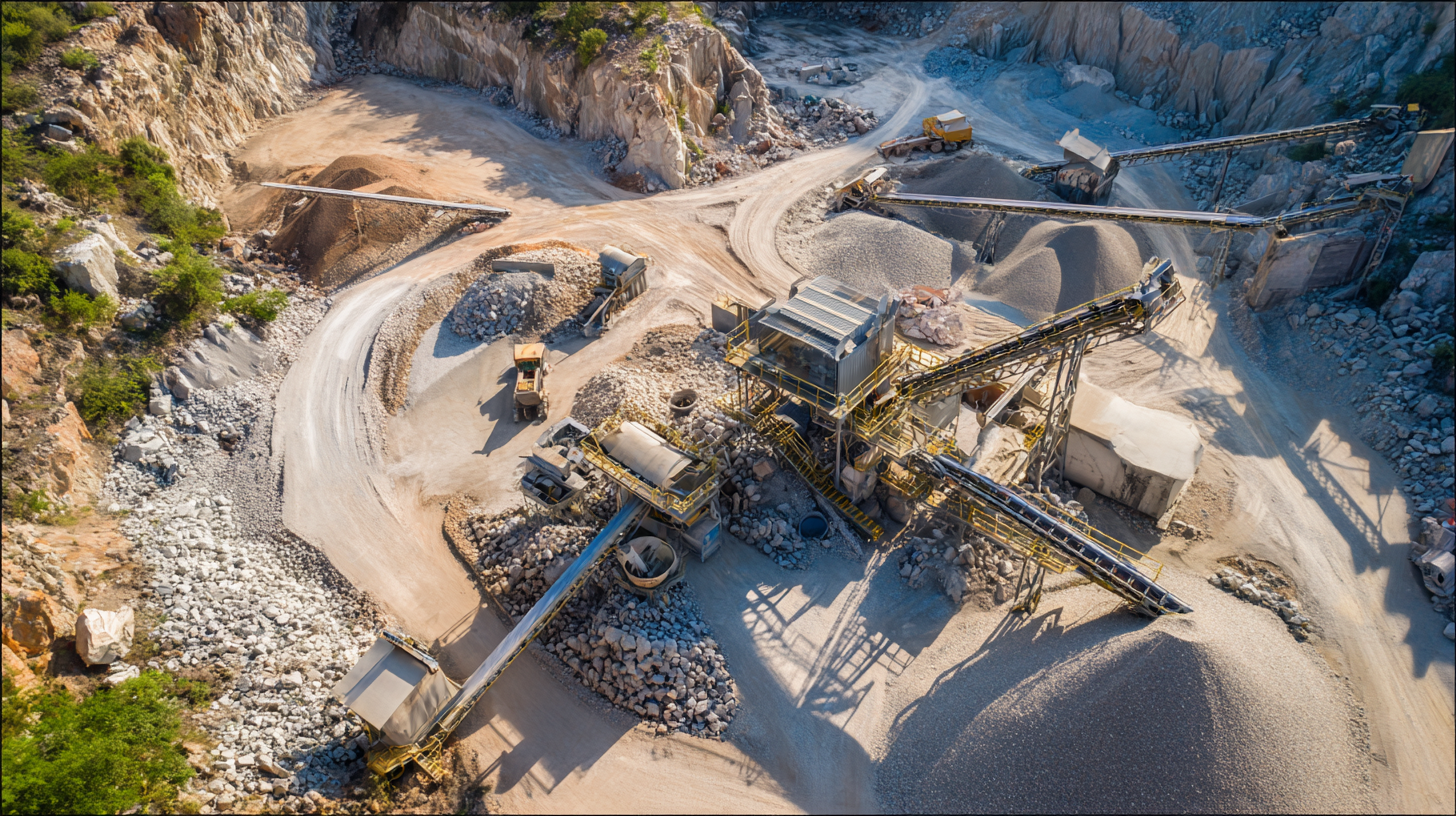The stone crusher industry plays a pivotal role in construction and mining sectors, with an expected market value projected to reach $4.5 billion by 2024, according to the latest industry reports. As urbanization accelerates and the demand for infrastructure-related projects rises, the need for efficient and reliable stone crushers is more critical than ever. With over 1,400 manufacturers globally, the competitive landscape is dynamic, driven by innovations in crushing technology and sustainable practices. Understanding the best stone crusher manufacturers for 2023 can provide businesses with insights into not only high-quality machinery but also the service and support levels essential for operational success. This article delves into the leading players in the market, spotlighting key attributes that distinguish them as top-tier stone crusher manufacturers.

The stone crusher market is experiencing significant growth, with projections indicating that it will reach USD 1,245,097 million by 2033. This growth is primarily driven by the increasing demand for construction materials and mining activities across various regions. Notably, the Asia-Pacific region has emerged as a leader, capturing an impressive 47.8% share of the market, driven by rapid urbanization and infrastructure development.
In addition to the economic aspects, the stone crusher industry is facing intriguing challenges, as highlighted by recent incidents involving the illicit use of stone crushers. A notable case involved authorities in Luxembourg uncovering nearly a ton of cocaine concealed within a stone crusher, showcasing the darker side of the industry. Such events serve as critical reminders of the need for stricter regulations and oversight within the sector, especially as it continues to expand globally.
This chart shows the estimated annual production capacity of various stone crushers in 2023, highlighting the industry's leading players.
 Innovative technologies in stone crushing equipment are evolving rapidly to meet the demands of the construction industry and enhance operational efficiency. Recent reports indicate that the global stone crushing equipment market is projected to grow from USD 7.27 billion in 2025 to approximately USD 14.59 billion by 2034. This growth is driven by advancements in automation and the increasing use of artificial sand in construction applications, suggesting a significant shift towards more sustainable practices within the sector.
Innovative technologies in stone crushing equipment are evolving rapidly to meet the demands of the construction industry and enhance operational efficiency. Recent reports indicate that the global stone crushing equipment market is projected to grow from USD 7.27 billion in 2025 to approximately USD 14.59 billion by 2034. This growth is driven by advancements in automation and the increasing use of artificial sand in construction applications, suggesting a significant shift towards more sustainable practices within the sector.
Companies are adopting cutting-edge technologies, such as the latest MP Series crushers, which prioritize operator safety and simplify maintenance processes. Furthermore, the integration of recycling processes with mineral extraction technologies reflects a trend where the stone crushing industry increasingly collaborates with recycling markets. For instance, events like the Steinexpo quarrying show highlight innovations that encourage efficiency and resource re-use, fostering a more sustainable approach to stone production. As manufacturers focus on leveraging these technologies, they play a crucial role in shaping the future of the industry while contributing to economic growth in various regions.
When selecting a stone crusher, several key features must be considered to ensure optimal performance and efficiency. First and foremost is the crusher's capacity, which is often measured in tons per hour. According to a recent industry report, crushers with capacities ranging from 50 to 800 tons per hour dominate the market. The choice of size will primarily depend on the scale of your operations and the nature of the materials being processed.
Another critical aspect is the type of crushing mechanism employed. The two most common types are jaw and impact crushers. Jaw crushers are known for their robust design and ability to handle hard materials, making them ideal for primary crushing. In contrast, impact crushers excel at producing fine aggregates necessary for construction. Assessing the specific needs of your project can significantly enhance productivity and reduce operational costs.
Tips: Consider the long-term maintenance costs associated with each type of crusher. Investing in quality equipment may yield lower maintenance expenses and downtime over time. Additionally, ensure that the manufacturer provides reliable after-sales support and readily available replacement parts to minimize disruption during operations.
The stone crusher manufacturing industry is currently experiencing significant shifts influenced by various market trends. One notable trend is the increasing demand for eco-friendly and sustainable practices. As environmental regulations become stricter, manufacturers are focusing on producing equipment that minimizes carbon emissions and enhances energy efficiency. This shift not only aligns with global sustainability goals but also appeals to a growing number of environmentally conscious consumers.
Another major trend is the advancement of technology in the stone crushing sector. The integration of automation and digitalization has optimized production processes, making them more efficient and cost-effective. Manufacturers are investing in sophisticated machinery and software that enable real-time monitoring and management of operations. This technological evolution is not only elevating the quality of stone crushing equipment but is also improving overall reliability and maintenance practices, thus attracting a broader customer base in the competitive market.
In recent years, sustainability has become a key focus within the stone crushing industry. Leading manufacturers are not only striving for efficiency and innovation but are also adopting practices that minimize environmental impact. Many companies are now implementing advanced technologies to reduce emissions and improve energy efficiency, contributing to a cleaner production process. These initiatives include adopting renewable energy sources, optimizing production lines to decrease waste, and utilizing environmentally friendly materials.

Furthermore, some manufacturers are engaging in comprehensive recycling programs, where they repurpose waste materials generated during the crushing process. This not only helps in conserving natural resources but also aligns with global sustainability goals. Additionally, by prioritizing eco-friendly operations and actively participating in community environmental programs, these companies are setting a standard for the industry. Their commitment to sustainability not only enhances their reputation but also attracts environmentally conscious consumers and partners, fostering long-term growth and stability in a competitive market.
